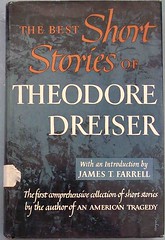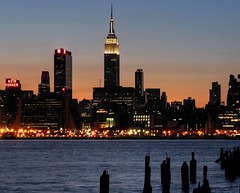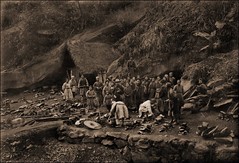AMSCO AP US History Chapter 21 Flashcards
AMSCO United States History 2015 Edition, Chapter 21 The Progressive Era, 1901-1917
Terms : Hide Images [1]
| 5115049925 | urban middle class | Most Progressives were urban middle-class men and women. They included: doctors, lawyers, ministers, storekeepers, office workers, and middle managers. (p. 432) |  | 0 |
| 5531076261 | male and female | The Progressive were composed of both men and women. (p. 432) |  | 1 |
| 5115049926 | white, old stock Protestants | Native-born, their churches preached against vice and taught social responsibility. (p. 432) |  | 2 |
| 5115049927 | professional associations | Groups of individuals who share a common profession and are often organized for common political purposes related to that profession. (p. 432) |  | 3 |
| 5115049928 | Pragmatism | In the early 20th century this philosophy focused on using a practical approach to morals, ideals, and knowledge. They encouraged experimentation to find solutions that would produce a well-functioning democratic society. (p. 433) |  | 4 |
| 5115049929 | William James | In the early 20th century, he was an advocate of the new philosophy of pragmatism. He argued that people should take a practical approach to morals, ideals, and knowledge. (p. 433) |  | 5 |
| 5115049930 | John Dewey | He was a philosopher who believed in "learning by doing" which formed the foundation of progressive education. (p. 433) |  | 6 |
| 5115049931 | Frederick W. Taylor | An engineer who sought to eliminate wasted motion. Famous for scientific-management, especially time-management studies. (p. 433) |  | 7 |
| 5115049932 | scientific management | A management theory using efficiency experts to examine each work operation, then find ways to minimize the time needed to complete the work. (p. 433) |  | 8 |
| 5115049933 | Henry Demarest Lloyd | In 1894, he wrote the book "Wealth Against Commonwealth". He attacked the practices of Standard Oil and the railroads. (p. 434) |  | 9 |
| 5115049934 | Standard Oil Company | An oil trust with control of many oil refinery companies, which created a monopoly in the oil industry. (p. 434) |  | 10 |
| 5115049935 | Lincoln Steffans | He wrote "The Shame of the Cities" (1904) which described in detail the corruption that characterized big-city politics. (p. 434) |  | 11 |
| 5115049936 | Ida Tarbell | A leading muckraker and magazine editor, she exposed the corruption of the oil industry with her 1902 series "The History of the Standard Oil Company". (p. 434) |  | 12 |
| 5115049937 | Jacob Riis | In 1890, he wrote "How The Other Half Lives", which showed the terrible conditions of the tenement houses of the big cities where immigrants lived during the late 1800s. (p. 434) |  | 13 |
| 5115049938 | Theodore Dreiser | An American author who wrote "The Financier" and "The Titan", novels which portrayed the avarice and ruthlessness of an industrialist. (p. 434) |  | 14 |
| 5115049939 | Australian ballot | A government printed ballot of uniform size and shape to be cast in secret that was adopted by many states around 1890. (p. 435) |  | 15 |
| 5115049940 | direct primary | A nominating process where voters directly select the candidates who will run for office. (p. 435) |  | 16 |
| 5115049941 | Robert La Follett | In 1903, this Progressive Wisconsin Governor introduced a new system which allowed the voters to directly choose party candidates (direct primary), rather than being selected by party bosses. (p. 435) |  | 17 |
| 5115049942 | Seventeenth Amendment | In 1913, this constitutional amendment was passed. It required that all U.S. senators be elected by a popular vote. (p. 435) |  | 18 |
| 5115049943 | direct election of senators | In 1899, Nevada became the first state to elect U.S. senators directly. Previously state legislatures had chosen them. (p. 435) |  | 19 |
| 5115049944 | initiative, referendum, and recall | Amendments to state constitutions made changes to politics. An initiative allowed reformers to circumvent state legislatures by submitting new legislature to the voters in a general direct election. A referendum is the method by which actions of the legislature could be returned to the electorate for approval. A recall allowed voters to remove a politician from office before their term was completed. (p. 435) |  | 20 |
| 5115049945 | municipal reform | City bosses and their corrupt alliance with local businesses such as trolley lines and utility companies were targeted for reform by Progressives. (p. 436) |  | 21 |
| 5115049946 | Samuel M. Jones | This Toledo mayor used "Golden Rule" as his middle name. He instituted free kindergartens, night schools, and public playgrounds. (p. 436) |  | 22 |
| 5115049947 | Tom L. Johnson | This Cleveland mayor devoted himself to the cause of tax reform and three-cent trolley fares. He fought for public controlled city utilities and services, but failed. (p. 436) |  | 23 |
| 5115049948 | commission plan | A city's government would be divided into several departments, which would each be placed under the control of an expert commissioner. (p. 436) |  | 24 |
| 5115049949 | city manager plan | Legislation designed to break up political machines and replace traditional political management of cities with trained professional urban planners and managers. (p. 436) |  | 25 |
| 5115049950 | Charles Evans Hughes | In New York, he battled fraudulent insurance companies. (p. 436) |  | 26 |
| 5531089056 | Hiram Johnson | In California, he fought against the economic and political power of the Southern Pacific Railroad. (p. 436) |  | 27 |
| 5115049951 | Wisconsin Idea | A series of Progressive measures that included a direct primary law, tax reform, and state regulatory commissions. (p. 436) |  | 28 |
| 5115049952 | regulatory commissions | Progressives created state regulatory commissions to monitor railroads, utilities, and business such as insurance. (p. 436) |  | 29 |
| 5115049953 | state Prohibition laws | By 1915, two-thirds of the states had passed these laws which prohibited the sale of alcohol. (p 437) |  | 30 |
| 5115049954 | National Child Labor Committee | They proposed child labor laws which were adopted by many of the states. (p. 437) |  | 31 |
| 5115049955 | compulsory school attendance | Many states passed laws, which made it mandatory for children to go to public schools. (p. 437) |  | 32 |
| 5115049956 | Florence Kelley | She was a reformer who promoted state laws which protected women from long working hours. (p. 437) |  | 33 |
| 5115049957 | National Consumers' League | This organization was formed in the 1890's, under the leadership of Florence Kelly. They attempted to mobilize the power of women as consumers to force retailers and manufacturing to improve wages and working conditions. (p. 437) |  | 34 |
| 5115049958 | Lochner v. New York | A 1905, this Supreme Court case ruled against a state law that limited workers to a ten-hour workday. (p 437) |  | 35 |
| 5115049959 | Muller v. Oregon | A 1908 Supreme Court case, it ruled that women needed special protection against working long hours. (p. 437) |  | 36 |
| 5115049960 | Triangle Shirtwaist fire | In 1911, a high-rise garment factory burned, killing 146 people, mostly women. (p. 437) |  | 37 |
| 5115049961 | Square Deal | Economic policy by President Theodore Roosevelt that favored fair relationships between companies and workers. (p. 438) |  | 38 |
| 5115049962 | anthracite coal miners' strike 1902 | Pennsylvania coal miners went on strike for an increase in pay and a shorter working day. When the mine owners refused to negotiate, President Theodore Roosevelt threatened to seize control of the mines. A compromise was finally agreed upon. (p. 438) |  | 39 |
| 5115049963 | trust-busting | President Theodore Roosevelt broke up the railroads and Standard Oil by using the Sherman Antitrust Act. (p. 438) |  | 40 |
| 5531115117 | bad vs. good trusts | President Theodore Roosevelt did make a distinction between breaking up "bad trusts", which harmed the public and stifled competition, and regulating "good trusts" which through efficiency and low prices dominated a market. (p. 438) |  | 41 |
| 5115049964 | Elkins Act | This 1903 act allowed the Interstate Commerce Commission (ICC) to stop railroads from granting rebates to favored customers. (p. 438) |  | 42 |
| 5115049965 | Hepburn Act | This 1906 act tightened existing railroad regulation. It empowered the Interstate Commerce Commission to set maximum railroad rates and to examine railroad's financial records. (p. 438) |  | 43 |
| 5115049966 | Uptown Sinclair; "The Jungle" | He wrote "The Jungle" which described the Chicago stockyards and meatpacking industry. (p. 438) |  | 44 |
| 5115049967 | Pure Food and Drug Act | This 1906 act forbade the manufacture or sale of mislabeled or adulterated food or drugs, it gave the government broad powers to ensure the safety and efficacy of drugs in order to abolish the "patent" drug trade. (p. 438) |  | 45 |
| 5115049968 | Meat Inspection Act | This 1906 act provided federal inspectors to visit meatpacking plants to insure that they met sanitation standards. (p. 439) |  | 46 |
| 5531134611 | conservation of public lands | President Theodore Roosevelt's most original and lasting contribution in domestic policy may have been his efforts to protect the nation's natural resources. (p. 439) |  | 47 |
| 5115049969 | Newlands Reclamation Act | A 1902 act that provide public land for irrigation projects in western states. (p. 439) |  | 48 |
| 5115049970 | White House Conference of Governors | A conference at the White House which publicized the need for conservation. (p. 439) | 49 | |
| 5115049971 | Gifford Pinchot | First head of the U.S. Forest Service under President Theodore Roosevelt (p. 439) |  | 50 |
| 5115049972 | Socialist Party of American | This third party was dedicated to the welfare of the working class. Their platform called for radical reforms such as public ownership of the railroads, utilities, and even some major industries such as oil and steel. (p. 440) |  | 51 |
| 5115049973 | Eugene V. Debs | One of the founders of the Socialist party and the party's presidential candidate from 1900 to 1920. (p. 440) |  | 52 |
| 5115049974 | Bull Moose Party | Nickname for the new Progressive Party, which was formed to nominate Theodore Roosevelt in the 1912 presidential election. (p. 441) |  | 53 |
| 5115049975 | New Nationalism; New Freedom | In the election of 1912, the Theodore Roosevelt and Woodrow Wilson were the main competitors. Roosevelt called for a "New Nationalism", with more government regulation of business and unions, women's suffrage (voting rights), and more social welfare programs. Wilson supported a "New Freedom", which would limit both big business and big government, bring about reform by ending corruption, and revive competition by supporting small business. (p. 441) |  | 54 |
| 5115049976 | Mann-Elkins Act | This 1910 act gave the Interstate Commerce Commission the power to suspend new railroad rates and oversee telephone, telegraph, and cable companies. (p. 432) |  | 55 |
| 5115049977 | Sixteenth Amendment, federal income tax | Ratified in 1913, this constitutional amendment, explicitly permitted Congress to levy a federal income tax. (p. 439) |  | 56 |
| 5115049979 | Payne-Aldrich Tariff 1909 | In 1909, President William Howard Taft signed this bill which raised the tariffs on most imports. (p. 440) |  | 57 |
| 5115049980 | firing of Pinchot | In 1910, he was head of the Forest Service, but was fired by President Taft. (p. 440) |  | 58 |
| 5115049981 | Underwood Tariff | In 1913, this tariff substantially lowered tariffs for the first time in over 50 years. To compensate for the reduced tariff revenues, the bill included a graduated income tax with rates from 1 to 6 percent. (p. 442) |  | 59 |
| 5115049982 | Federal Reserve Act | In 1914, this act created a central banking system, consisting of twelve regional banks governed by the Federal Reserve Board. It was an attempt to provide the United States with a sound yet flexible currency. It still plays a major role in the American economy today. (p. 442) |  | 60 |
| 5115049983 | Federal Reserve Board | This board was organized to supervise twelve district banks in the Federal Reserve Bank system. (p. 442) |  | 61 |
| 5115049984 | Clayton Antitrust Act | In 1914, this antitrust legislation strengthened the provisions in the Sherman Antitrust Act for breaking up monopolies. It exempted unions from being prosecuted as trusts. (p. 442) |  | 62 |
| 5115049985 | Federal Trade Commision | A federal regulatory agency, established in 1914 to prevent unfair business practices and help maintain a competitive economy. (p. 442) |  | 63 |
| 5115049986 | Federal Farm Loan Act | A 1916, 12 regional federal farm loan banks were established to provide farm loans at low interest rates. (p. 443) |  | 64 |
| 5115049987 | racial segregation laws | In the Progressive era (1901 - 1917), racial segregation was the rule in the South and the unofficial policy in the North. (p. 443) |  | 65 |
| 5115049988 | increased lynching | In the Progressive era, thousands of blacks were lynched (hung) by racist mobs. (p. 443) |  | 66 |
| 5115049989 | Booker T. Washington | This African American progressive argued that African Americans should concentrate on learning industrial skills in order to get better wages. (p. 443) |  | 67 |
| 5115049990 | W. E. B. Du Bois | This African American was a northerner with a college education. He argued that African American should demand equal political and social rights, which he believed were a prerequisite for economic independence. (p. 444) |  | 68 |
| 5115049991 | National Association for the Advancement of Colored People | This organization's mission was to abolish all forms of segregation and to increase educational opportunities for African Americans. (p. 444) |  | 69 |
| 5115049992 | National Urban League | Formed in 1911, this organization helped African Americans migrating from the south to northern cities. (p. 444) |  | 70 |
| 5115049993 | Carrie Chapman Catt | A suffragette, she worked to obtain the right for women to vote. She was president of the National Women's Suffrage Association, and founder of the International Woman Suffrage Alliance. Instrumental in obtaining passage of the 19th Amendment in 1920. (p. 445) |  | 71 |
| 5115049994 | National American Woman Suffrage Association | A group formed in the late 1800s to organize the women's suffrage movement. (p. 445) |  | 72 |
| 5115049995 | Alice Paul | A suffragette who focused on obtaining an amendment to the Constitution for women's suffrage (voting rights). (p. 445) |  | 73 |
| 5115049996 | National Woman's party | In 1916, Alice Paul formed this organization to focus on winning the support of Congress and the president for a Constitutional amendment for women's suffrage. (p. 445) |  | 74 |
| 5115049997 | Nineteenth Amendment | In 1920, this amendment passed which gave women the right to vote. (p. 445) |  | 75 |
| 5115049998 | League of Woman Voters | Organized by Carrie Chapman Catt. A civic organization dedicated to keeping voters informed about candidates and issues. (p. 445) |  | 76 |
| 5115049999 | Margaret Sanger | She founded an organization the became Panned Parenthood. They advocated for birth-control education. (p. 445) |  | 77 |
